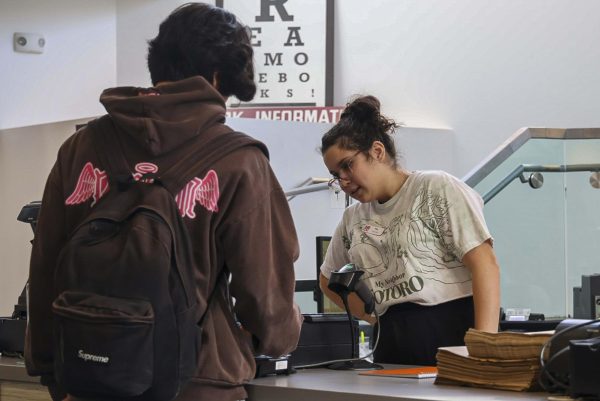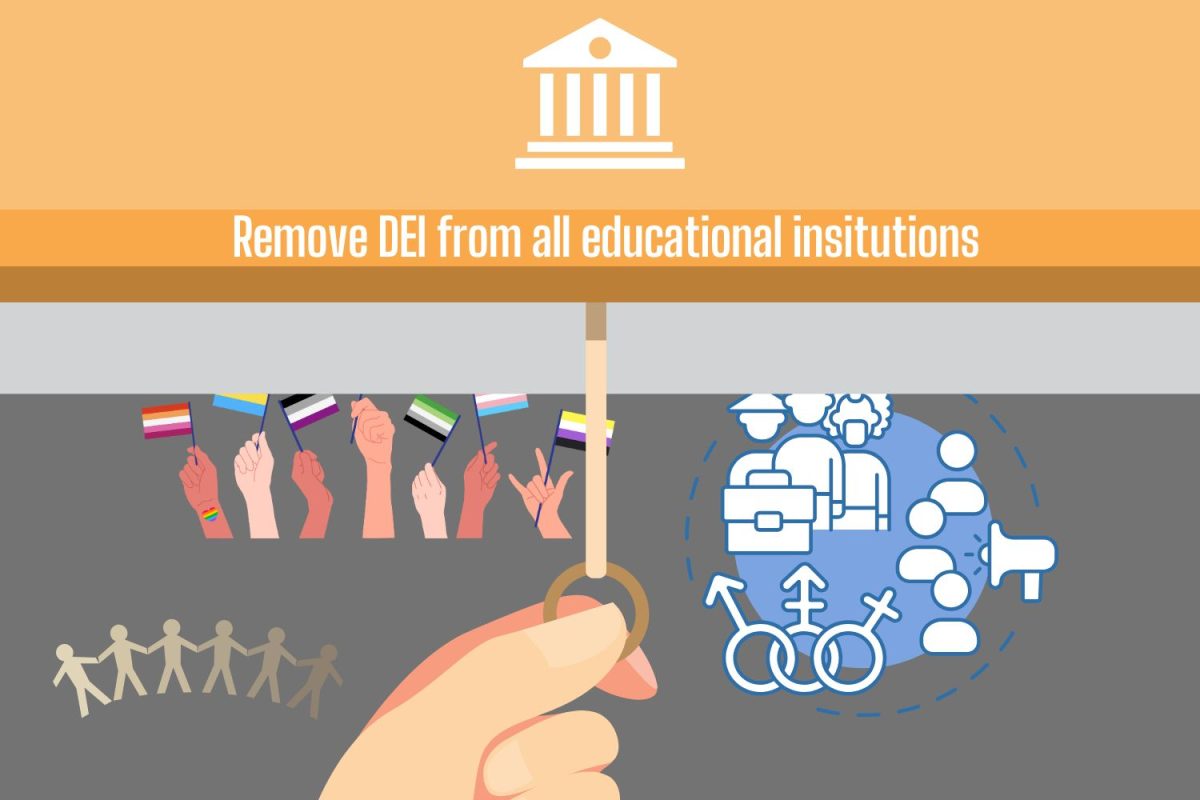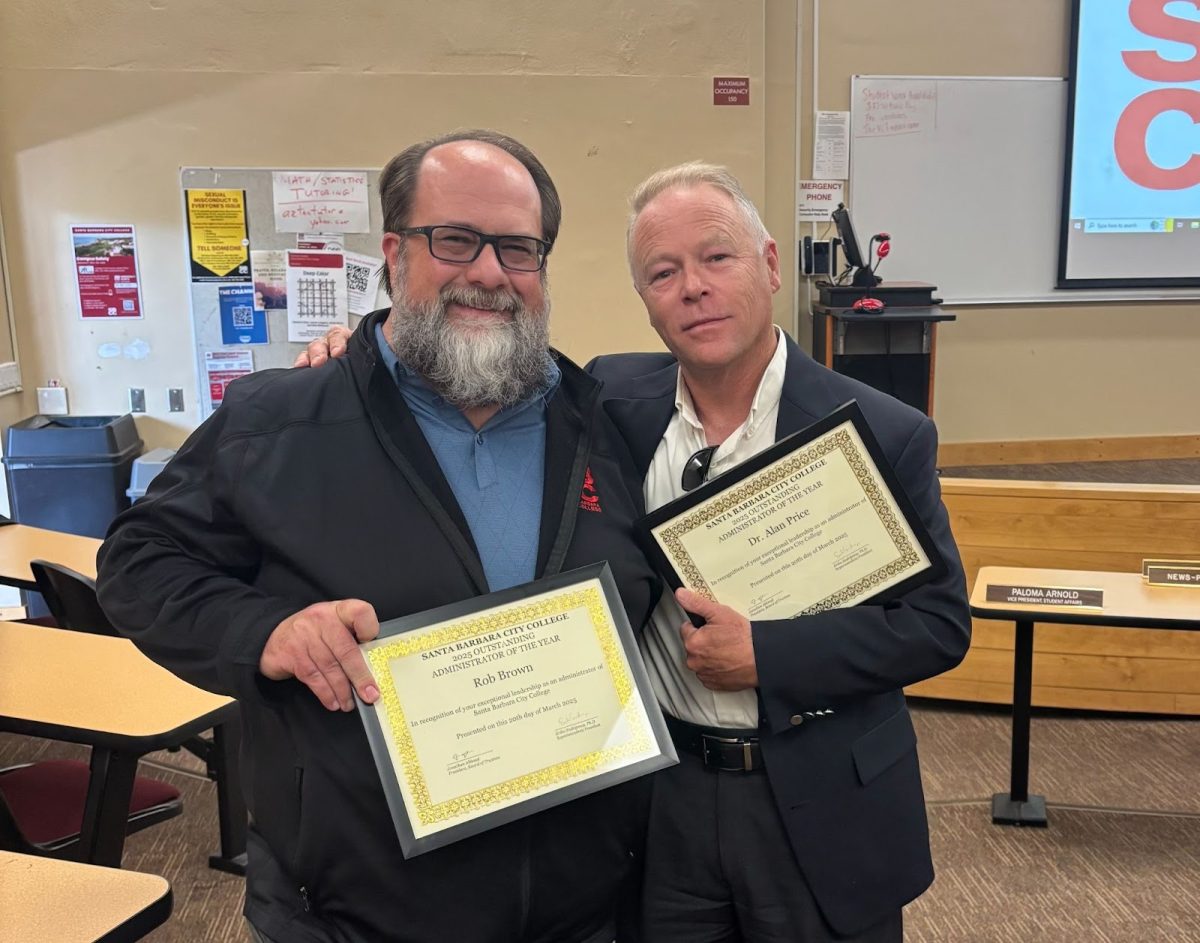Concerns over increased textbook costs at City College have emerged since Follett, the new textbook publisher company on campus, took over the bookstore for the spring 2024 semester.
Faculty and students have noticed textbook price increases of up to 50% compared to last year. Additionally, textbooks are missing from the online database, making it difficult for students to access required course materials.
The lack of communication and confusion around price increases has provoked controversy amongst the Follett corporation and City College faculty since last semester, and is continuing to surface to the forefront of conversation.
“The assumption was that this transition would save students money,” Librarian Corrie Bott said. “In fact, both Erika [Endrijonas] and María [L. Villagómez] at some point said it would. They were probably under the same assumption.”
Follett was initially brought to City College to help alleviate the school’s budget concerns in the textbook division and address its continuous budget crisis.
“When we were told that we’re switching to Follett, one of the promises that the company vice president shared was that because of Follett buying power, we could expect many opportunities for lower prices,” Kimberly Monda, president of the Academic Senate, said. “So that is the ideal. With their higher volume, they can access more affordable texts. But, different pressures increased prices, and we are just starting to investigate that.”
Continual meetings amongst representatives from the Follett Corporation and City College faculty, including Monda herself, are planned for the upcoming semester to address and “investigate” the drastic price increases.
“A course pack last semester would be twelve dollars,” Monda said. “This semester, that same course pack was about twenty-two. How did we get from twelve to twenty-two dollars for an in-house workbook? We’re still waiting to get the breakdown on that.”

Most of the outrage from faculty arose after the first week of classes when faculty members realized their textbook prices had risen despite being “promised” by Follett that faculty could potentially see price decreases.
When breaking down the contract, Bott explained, “It specifically states that course packs will be sold at no more than 30% gross margin. And if you’re talking a $25 cost versus a $10 cost. That’s 100%.”
100% price increases prompted anger, concern, and complaints from faculty about Follett allegedly not honoring their contract and, in turn, harming students who might not be able to afford their textbooks.
“If you’re going to City College as a way to kind of either bridge the gap to another school or to get a certificate, it seems it’s an affordable option,” Bott said. “Adding in the textbooks is really gonna hurt students because [if there is] 30% [or] 50% increase in the textbook [prices], across four classes. That’s a lot of money.”
Along with these price increases, Follett is bringing in a new source of income that City College did not have prior.
“The bookstore before [Follett] was not making money,” Bott said. “It wasn’t. It was in the red.”
“In the red” means more money is being spent than made. City College has stayed “in the red” for accessibility reasons not to burden students with textbook costs, and to provide an affordable education.
“Now we bring in Follett, who is paying City College a commission,” Bott said. “So now City College is making money, fulfillment being here, but in my mind, Follett being here is now charging students more for textbooks.”
Bott coordinated and tracked complaints and concerns from faculty to hold Follett accountable and take action against the situation. One option was to break ties with Follett completely.
“Getting out of the contract could be an option,” Bott said. “That’s how upset the faculty are. They’re like, ‘Nope, we’re done.’”
The contract allows up to 120 days if City College wants to back out of the agreement.
Despite this, Bott said she “does not see it happening” in reference to breaking the deal.
On Friday, Feb. 9, a subcommittee within the Academic Senate held a meeting in which Follett explained the allegations against them for not honoring their end of the contract.
“Whatever they are charged from the publisher, according to the contract and what their standard practices [are], they’ll charge a percentage over that profit margin,” Bott said. “There’s also some pricing that they add on that helps them maintain their budget. It does mean we’ll consistently keep seeing these higher prices.”
Similarly, Monda has attended “two meetings” with Auxiliary Services Director Paul Miller and “several Follett representatives” in which she explained their approach to addressing the situation.
“Some faculty leaders are involved with this, as well as several Follett representatives, and they are open,” Monda said. “They’re like, ‘yes, we’ll show you everything. We want you to have total choice as your order in your text, but we still don’t have that.’”
According to Monda, Follett has been “open” to speaking about the issue and providing explanations, easing the tension between the faculty and the Follett Corporation. However, there are still some unanswered questions, and according to Monda they are set to be discussed during the next Academic Senate meeting on Feb. 14.
“We are really looking at this as a great learning opportunity to help faculty review the nature of costs today because the industry’s changed so much,” Monda said.
The Channels contacted Auxiliary Services Director Paul Miller on several occasions as well as Assistant Superintendent Brian Fahnestock to schedule an interview, but did not receive a response.
Correction: Feb. 14, 2024
A previous version of this story misspelled the name of Erika Endrijonas. The error has been corrected.















